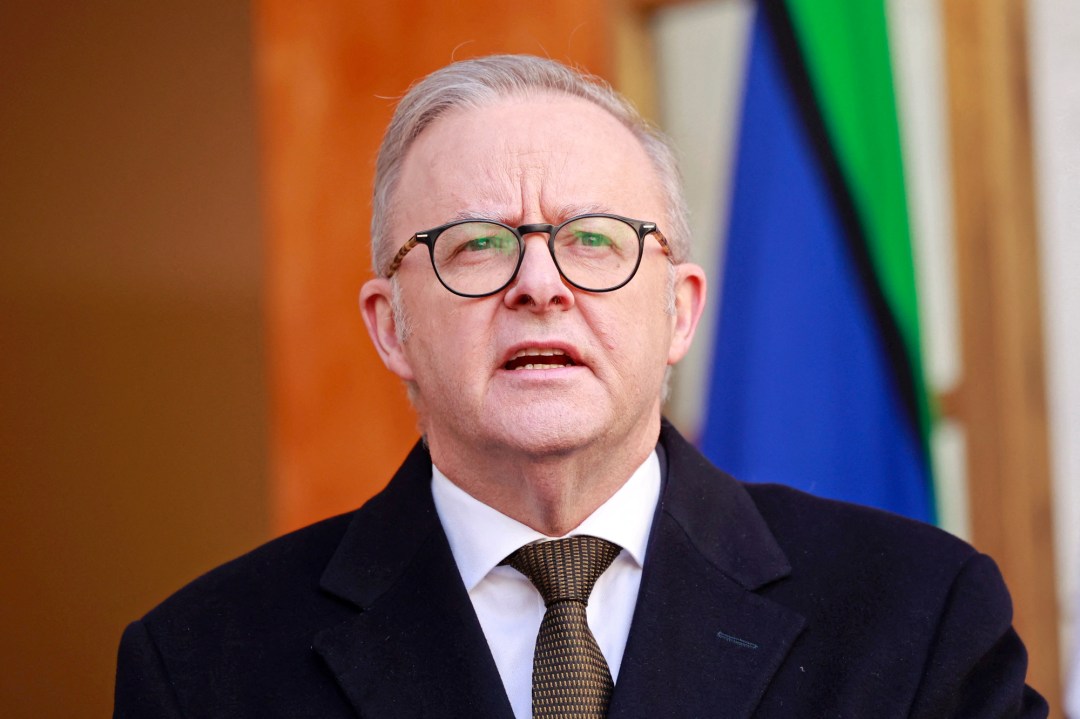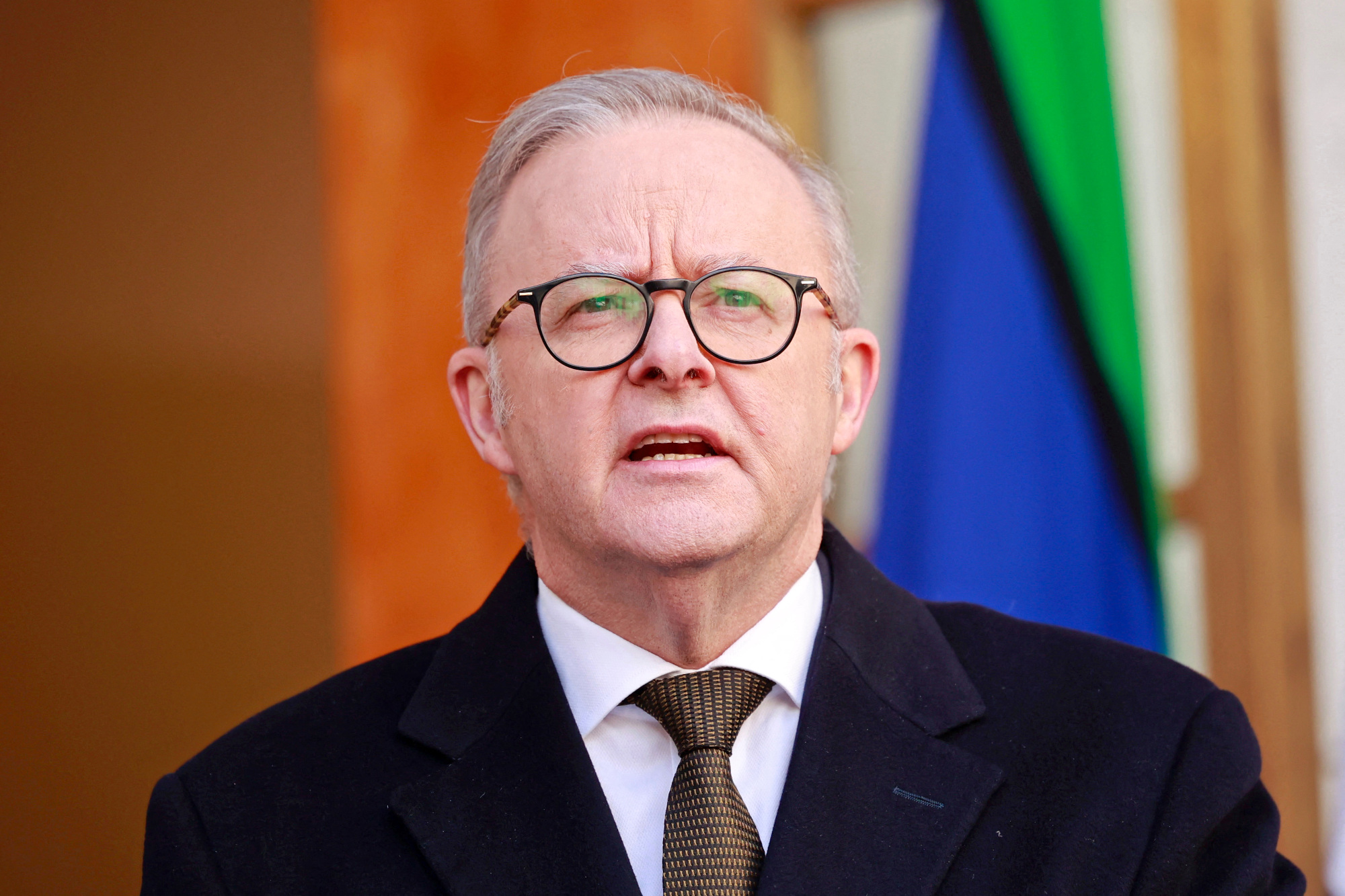In 1968, the American broadcaster Walter Cronkite told his national TV audience the United Stated was losing the war in Vietnam, causing then-president Lyndon Johnson to remark, ‘If I’ve lost Cronkite, I’ve lost America’, soon after declaring he would not stand for re-election. As he moves to implement a total occupation of Gaza in his determination to extirpate Hamas and its soldiers of terror, Israel’s prime minister, Benjamin Netanyahu, risks a similar realisation.
A week after an estimated 90,000 people joined a court-sanctioned pro-Palestine protest march across Sydney’s Harbour Bridge, Australia’s Labor government announced that it will be voting to recognise a state of Palestine when the United Nations General Assembly meets next month, ‘to contribute to international momentum towards a two-state solution, a ceasefire in Gaza and release of the hostages’.
Even if it is well-intended to give hope to the beleaguered people of Gaza, it also gives aid and comfort of a ruthless and unscrupulous Hamas
Australia joins the left-wing governments of France, Britain, and Canada in moving towards recognition, in the face of distressing images of death, suffering and misery in Gaza. New Zealand’s centre-right coalition likely will join them in the coming days. In doing so, the Australian government at least had the courtesy of informing Netanyahu and American Secretary of State, Marco Rubio, of its intentions. Needless to say, Netanyahu is furious, and the Trump administration so far has been muted in its response.
Addressing the media, Australian prime minister Anthony Albanese stressed that, in his opinion, recognition is the right thing to do. ‘A two-state solution is humanity’s best hope to break the cycle of violence in the Middle East and to bring an end to the conflict, suffering and starvation in Gaza’, he said.
Albanese made clear his mind was made up after speaking to Palestine Authority (PA) leader Mahmoud Abbas late last week. According to Albanese, Abbas repeated commitments he made to French president Emmanuel Macron in June. Abbas will recognise Israel as consistent with the 1993 Oslo Accords and also back: ‘demilitarisation of any future Palestinian state; the potential role for international forces in security; the reform of governance, including of education as well as a call for elections; the isolation and opposition to Hamas playing any role in a future Palestinian state.’
While Albanese affirmed Australia’s grave concern for Israeli hostages still suffering at the evil hands of Hamas, and his government’s earnest desire for their release and a ceasefire in Gaza, his account of the undertakings he obtained from Abbas did not include ensuring the hostages’ freedom, nor the actual eradication of Hamas before recognition takes effect.
Instead, Albanese chose to rely on the glib undertakings of an elderly Palestinian Authority leader who is in the third decade of his four-year term of elected office – a leader who has no real power in Gaza. There is no way Australia, or the other recognising governments, can go to the General Assembly next month certain that their preconditions for recognition will even be honoured, let alone ever met. Even if it is well-intended to give hope to the beleaguered people of Gaza, it also gives aid and comfort of a ruthless and unscrupulous Hamas.
That Australia’s Labor government chose the recognition path is, however, unsurprising. The left wing of the Labor party is stridently pro-Palestine, and Labor’s Greens party allies are even more radical and incendiary in their anti-Israel rhetoric. A significant number of Labor constituencies in Sydney and Melbourne contain large Muslim minorities, which has focused the minds of influential Labor MPs in those normally ultra-safe seats.
But Albanese also read a shifting public mood. Whatever the actual truth, or the selectivity of what is shown, the incessant mainstream and social media coverage of food aid failures in Gaza, with harrowing images of suffering and desolation, has touched the consciences of many Australians, just as the barbaric atrocities against innocent Israeli men, women and children did almost two years ago. Mass protests like that in Sydney, which saw ordinary people – not just the usual activists – turning out in large numbers will have assured Albanese that, in recognising Palestinian statehood, he is reflecting Australian public opinion.
As so often happens in politics, the Australian government’s decision today arguably was a case of, ‘there go my people. I must follow them, for I am their leader’.
Meanwhile, Australia’s recognition decision sends a message to both Hamas and Israel’s government. To Hamas, it is further evidence that western solidarity against them is faltering. For Israel, it is yet another indication that, despite 7 October, the justice of their cause, and the legitimacy of their determination to preserve’s Israel’s existence, the Netanyahu government is losing hearts and minds across the world. The truth of aid failures and food shortages in Gaza, and just who are responsible for them, has been lost in harrowing images and a morass of mis- and disinformation.
In a furious response to Australia and other western nations who are recognising Palestine, Netanyahu told an Australian journalist at a press conference on Sunday, ‘I think we’re actually applying force judiciously, and [the Australian government] know it. They know what they would do if right next to Melbourne or right next to Sydney you had this horrific attack. I think they would do it.’
Netanyahu is absolutely right. But just as Lyndon Johnson was winning his Vietnam war on the ground while losing it in sitting rooms around the world, Netanyahu’s determination for Israel to prevail in Gaza and eradicate Hamas solely on its own terms is costing him, and his valiant, embattled nation, dearly in the court of international public opinion.








Comments